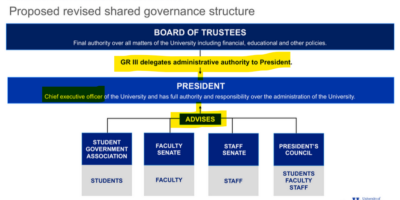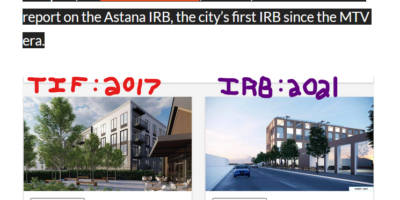Dear editor,
I would like to invite readers to take the Project Appleseed pledge of school and community involvement. I am a student at the University of Kentucky and sort of fell into a public advocacy class. Lucky for me, the class provided a friendly push toward advocating for the betterment of our schools. After working in an after school program for two years and taking a few child development classes, I decided that I was very much in support of school reform. When an assignment arose for finding a live advocacy campaign, it was obvious that I’d focus on schools.
But exactly what part of school needs reforming? If you were to ask me a few weeks ago, my answer would be, “Everything!” After doing some research, though, I came across Project Appleseed, which emphasizes the importance of community and parent involvement in education. It makes a lot of sense. Yes, many public school systems could use improvement in the areas of curriculum, format of the school day, teacher training and support programs, and many more aspects of education. But if all this changes, and there is no increase in interaction between our schools and our communities, will the change turn out to be in vain? If parents do not take charge and involve themselves with their child’s education, what the child learns will be confined within the walls of a school building. Communities need to embrace the school system as an extension of the community itself, so that children will know education goes beyond the school itself.
Project Appleseed’s philosophy is that communities and schools need to work together to create a healthy learning environment for children, establish training and support programs for educators, and emphasize nutrition and fitness. Their system is represented by “Six Slices of Parent Involvement”: volunteering, parenting, community, learning at home, decision making, and collaborating with community. “Volunteering” involves their system of recruiting parents and citizens to devote at least five hours a semester to their school district. The pledge for volunteering gives a wide range of options from clerical work to helping supervise field trips. There are even options for people who have special skills such as carpentry, gardening, and photography. This puts emphasis on the fact that there is a place for everybody.
Project Appleseed’s involvement with “parenting” includes researching ways to help families engage with their children’s education. A large part of this is providing families with resources to help with homework and other school-related projects or activities. This particular slice seems very important to me. As a person who works with children—let me revise that, as a college-educated person who works with children—I have found much difficulty in figuring out even kindergarten-level assignments. Yes, I know what rhymes with “suit,” and which number comes before three. However, when a paper includes only a limited amount of pictures and words and no directions, even the wisest of adults can be left stumped. This leaves out the fact that not all parents are “the wisest of adults.” However, that shouldn’t hinder their ability to help their children with homework. Schools should provide resources to families that will help them to work effectively with their children outside of school. The “learning at home” slice is very much tied to the idea of children being able to extend learning beyond the school building and school hours.
“Decision making” emphasizes the fact that parents and the community should be involved with the decision making process within the school system. This flows freely with the idea that the community itself should be an umbrella that encompasses the education system rather than a separate entity from the education system. In Lexington alone, there are many programs that help our children and community, such as the YMCA and Big Brothers, Big Sisters. Project Appleseed advocates for joining these programs with our school buildings. A great example of this is the YMCA and Parks and Recreation after school programs that many of Lexington’s schools house. The children who attend these programs also attend classes outside of school hours and camps during the summer. They learn early on to become a part of their community. Project Appleseed advocates for involving community, and I believe this is the most important part of their mission. Not a “kid person”? That’s no reason to be uninvolved in our public schools. Our educational system, whether we like it or not, cultivates our future community. So maybe you aren’t a kid person, but chances are, if you’re an avid reader of this paper, you do care about your neighborhood.
I would like to inject that I am not an employee of, or directly affiliated with, Project Appleseed, and I only recently began my journey as an advocate for their campaign. I would also add that I do not particularly care whether or not reading this letter makes you jump on the Project Appleseed website and whole-heartedly but absent-mindedly sign their pledge. My hope is that anyone who reads this letter will simply think about what education means to you and what it can mean for the community. Decide whether or not you agree with what I’ve said, and take a stand. I implore you to make the decision to become involved with your community. And in that, I hope you decide that making a commitment to our children and their future is a very important aspect of that involvement.
Thank you,
Amelia Conley
concerned student and community advocate




Leave a Reply